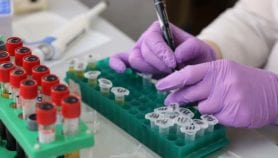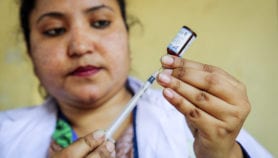By: Priya Shetty
Send to a friend
The details you provide on this page will not be used to send unsolicited email, and will not be sold to a 3rd party. See privacy policy.
A free trade agreement with the EU threatens India's generic drug industry and the developing world's access to lifesaving drugs, says Priya Shetty.
In global health circles India has been dubbed 'the world's pharmacy'. It supplies a huge share of lifesaving drugs to the developing world, largely because of provisions in the country's intellectual property laws that allow local companies to produce and export cheap generic drugs.
But India's formidable pharmaceutical industry is at risk of collapse; the country is locked in negotiations with the European Union (EU) to establish a free trade agreement (FTA).
This agreement would bring significant gains for India's flourishing economy, such as improving market access for goods and services, and increasing EU–India trade, investment and business opportunities.
But there is a deadly catch. In return for allowing free trade, the EU is demanding much stricter patent laws that would suffocate India's generic drug capacity.
New restrictions would not just be detrimental to India but also to the many countries in Africa, Asia and South America that rely heavily on India as a source of cheap lifesaving drugs, including anti-retrovirals to fight HIV/AIDS.
Patent problems
After a tough round of negotiations last month (28–30 April), the EU and India are set to lock horns again in the next couple of weeks. Initial discussions began in 2007 and the EU is now getting impatient — it wants the agreement signed by October this year.
While the EU and some Indian ministers maintain that the FTA will not affect global health, health advocates such as Médecins Sans Frontières (MSF) disagree.
A leaked copy of the agreement shows that the EU is clearly contradicting itself, says Leena Menghaney, who coordinates MSF's Campaign for Access to Essential Medicines in New Delhi, India.
It includes patent provisions, such as data exclusivity for patent holders, which restricts generics companies' use of data from brand-name corporations, potentially forcing them to do their own clinical trials. Data exclusivity essentially stops a product coming into the market, blocking competitors and keeping prices high.
"India is very concerned about this," Menghaney told SciDev.Net. "But the Europeans are refusing to take these provisions off the table. It is non-negotiable for them."
The provisions allow patent extensions too, which would mean a longer wait before companies can produce generics.
And the negotiations are also pushing for enforcement measures on trade in generic medicines, which could result in drugs getting held up for months at customs and border control.
Learning from history
Pitting the benefits of free trade against the costs of losing patent advantages is a dilemma that has been faced by other developing countries before.
Rohit Malpani, senior policy advisor at Oxfam International, warns that "these agreements are very similar to earlier free trade agreements between the United States and other developing countries, whose negative public health impacts are coming into clear view."
A study by his organisation on the public health impacts of US FTAs with Guatemala and Jordan "indicate lengthy delays to generic competition due solely to the rules imposed under the free trade agreement," he says.
In Jordan, data exclusivity increased medicine prices by 20 per cent between 2001 and 2007. It also "delayed generic competition for 79 per cent of medicines entering Jordan's market between 2002 and mid-2006, that otherwise would have been available in an inexpensive, generic form," says Malpani.
The Oxfam study estimates that data exclusivity cost Jordan US$6.3–22 million in additional expenditures for medicines with no generic competitor.
Intellectual property for development
Ironically, India's intellectual property wrangles with the EU come just as the World Intellectual Property Organization (WIPO) — the UN agency that exists to promote intellectual property protection among member states — finally created a mechanism to monitor its development agenda.
Ever since 2007, WIPO has said it would commit to working in a way that does not harm developing nations' interests. This means, for example, ensuring that traditional knowledge is not exploited. But it also means not allowing patent regulations to obstruct access to medicines.
The promise, until now, has rung hollow but this month WIPO announced the creation of its Development Agenda Group — a group of 18 developing nations, led by Egypt — to keep the agency on track and ensure that development is incorporated into all its activities.
Open-door policies
Decision-makers have an obligation to consult relevant stakeholders — in this case, doctors and patients — and also to be transparent in their actions. But the EU has not consulted these groups. It is hard to interpret the EU's actions in its current negotiations with India in any way other than that it is protecting the interests of multinational pharmaceutical companies over the health of the poor.
The EU's development policy explicitly states that it "aims to give disadvantaged people in the third world control over their own development."
This includes, it says, "access to cheap medicines to combat scourges like HIV/AIDS". The EU would do well to follow its own recommendations.

Journalist Priya Shetty specialises in developing world issues including health, climate change and human rights. She has worked as a news editor at New Scientist, assistant editor at The Lancet, and commissioning editor at SciDev.Net.













